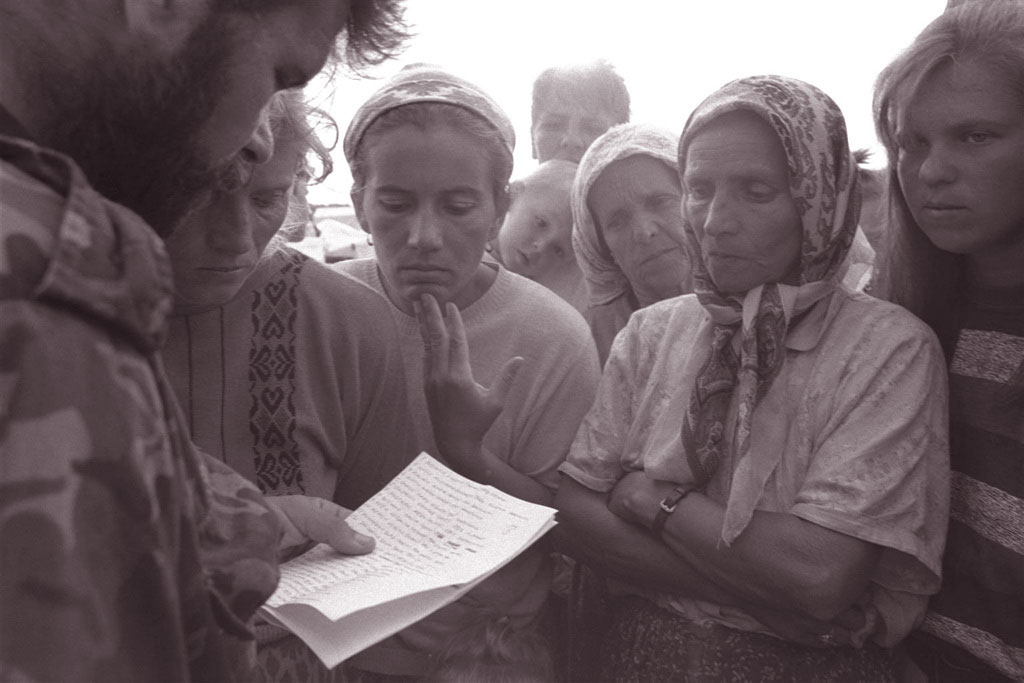New York, NY…Welcoming today’s conviction of former Bosnian Serb army commander Ratko Mladic on multiple counts of genocide, crimes against humanity and war crimes by an international tribunal, the United Nations top human right official said that the verdict is “a warning” to perpetrators of such crimes that they will be brought to justice.

In 1995, a government soldier reads out the names of soldiers who are confirmed survivors or escapees from the fallen city of Srebrenica. UNICEF/NYHQ1995-0553/LeMoyne
“Mladic is the epitome of evil, and the prosecution of Mladic is the epitome of what international justice is all about,” underscored Zeid Ra’ad Al Hussein, the UN High Commissioner for Human Rights, in a statement Wednesday.
“Today’s verdict is a warning to the perpetrators of such crimes that they will not escape justice, no matter how powerful they may be nor how long it may take. They will be held accountable,” he added.
Mladic presided over some of the most horrific crimes to occur in Europe since World War II, bringing terror, death and destruction to thousands of victims, and sorrow, tragedy and trauma to countless more.
In the statement, Mr. Zeid also noted that Mladic’s conviction, by the International Criminal Tribunal for the Former Yugoslavia (ICTY), is “a testament to the courage and determination of those victims and witnesses who never gave up hope that they would see him brought to justice.”
He also expressed hope that while the conviction will not return loved ones to their families or erase the past, the verdict can help “counter the voices” of those who either deny these horrific crimes or glorify those who committed them.
Ratko Mladic and Radovan Karadzic – two of the main architects of some of the worst atrocities in Bosnia and Herzegovina, including the genocide of Bosnian Muslims in Srebrenica – have now been convicted by the Tribunal and are facing lengthy jail sentences.
Read more on the Mladic case at ICTY (IT-09-92-PT)
From 1994 to 1996, Mr. Zeid, had served at the UN Protection Force in the former Yugoslavia and experienced the war there first-hand. He later played a key role in the establishment of the International Criminal Court (ICC).
Underscoring that all those who question the importance of the ICC should reflect on the Mladic case, Mr. Zeid also underscored that all those who are committing serious international crimes in so many situations today across the world “should fear this result.”


